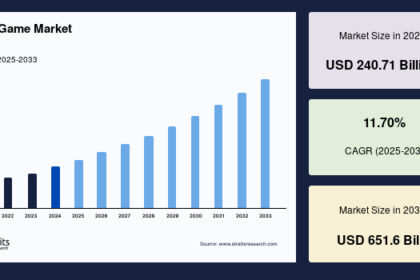In B2B marketing, one of the most critical factors driving revenue growth is the ability to identify and convert high-quality leads efficiently. Optimizing for MQLs ensures that marketing and sales teams focus on prospects most likely to convert, improving both pipeline efficiency and ROI. Marketing Qualified Leads (MQLs) represent prospects who have shown sufficient engagement or intent, making them ideal candidates for nurturing and eventual sales conversion. Employing strategic approaches to enhance lead qualification and MQL conversion can drastically improve business outcomes.
Defining Effective Lead Qualification Criteria
The first step in improving MQL conversion is defining robust lead qualification criteria. This involves assessing both demographic and behavioral indicators. Demographics include company size, industry, geographic location, and job role, while behavioral signals involve website visits, content downloads, webinar participation, and email engagement. By establishing these criteria, teams can distinguish high-quality leads from low-potential prospects, ensuring that resources are allocated efficiently and conversions are maximized.
Implementing a Robust Lead Scoring System
Lead scoring plays a pivotal role in optimizing MQL conversion. By assigning numerical values to different lead behaviors and attributes, marketers can prioritize leads most likely to convert. For example, attending a product webinar or requesting a demo may carry higher points than merely opening an email. Demographic attributes, such as decision-maker roles, further influence scoring. A well-structured lead scoring system ensures sales teams engage with the highest-potential leads, improving efficiency and conversion rates.
Personalization for Higher Engagement
Personalization is a cornerstone of effective MQL optimization. Generic messaging often fails to engage leads, while tailored campaigns increase responsiveness. Utilizing behavioral and demographic data, marketers can deliver content and offers relevant to each prospect. Personalized email campaigns, customized landing pages, and targeted resources ensure that MQLs feel understood and valued, increasing engagement and the likelihood of conversion.
Leveraging Marketing Automation
Marketing automation tools are invaluable for managing and nurturing MQLs efficiently. Automation enables segmentation based on engagement, triggers workflows, and delivers timely, relevant content. Automated nurturing campaigns maintain lead interest and move prospects through the funnel effectively. Additionally, automation reduces human error in lead scoring, ensuring consistency and accuracy in MQL identification.
Behavioral Analysis to Identify Intent
Monitoring lead behavior provides insights into their intent and readiness to buy. Tracking website interactions, content consumption, email opens, and social media engagement allows marketers to prioritize highly engaged leads. Leads demonstrating consistent interest are more likely to convert, while those with lower engagement may require additional nurturing. Behavioral analysis ensures that MQLs are accurately qualified and that sales efforts are directed toward prospects with the highest conversion potential.
Aligning Marketing and Sales Teams
Collaboration between marketing and sales teams is essential for improving MQL conversion. Regular alignment ensures that both teams agree on lead qualification criteria, scoring models, and follow-up procedures. Sales feedback on lead quality informs marketing adjustments, while marketing insights guide sales engagement strategies. This alignment creates a seamless lead handoff process and increases the chances of successful conversion.
Content Strategy for Lead Engagement
High-quality content attracts and nurtures MQLs effectively. Offering whitepapers, case studies, eBooks, and industry insights helps identify engaged prospects. Gated content, which requires contact information to access, is particularly effective for capturing leads demonstrating intent. Mapping content to buyer journey stages ensures leads receive relevant materials, nurturing them through awareness, consideration, and decision phases, thereby optimizing conversion rates.
Segmentation for Targeted Campaigns
Segmenting leads by industry, company size, engagement behavior, or geography allows marketers to deliver highly targeted campaigns. Segmentation ensures that messaging resonates with each audience group, increasing engagement and conversion likelihood. By addressing specific needs, marketers can optimize resources, nurture MQLs more effectively, and drive higher-quality lead conversions.
Data Analytics to Refine Strategies
Data analytics plays a critical role in improving MQL performance. By examining historical lead data, marketers can identify characteristics and behaviors associated with successful conversions. Predictive analytics can forecast which leads are most likely to convert, enabling proactive engagement. Utilizing data-driven insights ensures that marketing campaigns target the right prospects and that MQL optimization strategies are continuously refined.
Lead Nurturing to Accelerate Conversion
Nurturing campaigns are essential to transform MQLs into sales-qualified leads (SQLs). Providing value at every stage of the buyer journey builds trust and strengthens engagement. Techniques include personalized emails, targeted content, retargeting campaigns, and timely follow-ups from sales representatives. Consistent nurturing ensures leads remain engaged, reducing drop-offs and increasing the likelihood of successful conversions.
Leveraging Marketing Technology (MarTech)
Marketing technology platforms enhance MQL optimization by integrating CRM, automation, analytics, and engagement tools. This integration provides a holistic view of lead interactions, enabling personalized engagement, improved segmentation, and accurate tracking of lead behavior. Leveraging MarTech ensures marketing efforts are focused on the most promising prospects, enhancing both lead quality and conversion rates.
Continuous Testing and Optimization
Improving MQL conversion requires continuous testing and iteration. A/B testing campaigns, landing pages, and content offers provides insights into what resonates most with prospects. Reviewing and updating lead scoring criteria ensures alignment with evolving buyer behaviors and market trends. Continuous optimization allows marketers to maintain a high-quality pipeline and maximize conversion opportunities.
Training Teams for Effective Lead Qualification
Educating marketing and sales teams on MQL definitions, lead scoring, and engagement strategies ensures consistency and effectiveness. Providing playbooks, guidelines, and training resources equips teams to implement best practices efficiently. Well-trained teams are better positioned to identify, nurture, and convert high-quality leads, enhancing overall MQL performance and driving revenue growth.
Measuring MQL Success Metrics
Monitoring KPIs is crucial for evaluating MQL optimization strategies. Metrics such as the number of MQLs generated, MQL-to-SQL conversion rate, engagement scores, and revenue contribution provide insights into performance. Regular analysis helps teams identify areas for improvement, refine strategies, and demonstrate the impact of marketing on business outcomes, ensuring sustained growth.
About Us : Acceligize is a global B2B demand generation and technology marketing company helping brands connect with qualified audiences through data-driven strategies. Founded in 2016, it delivers end-to-end lead generation, content syndication, and account-based marketing solutions powered by technology, creativity, and compliance.



